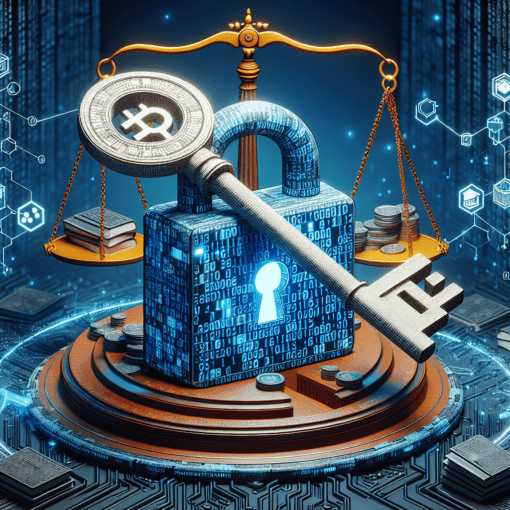Decentralized Content Moderation in the Blockchain Era
Content moderation is a pivotal issue that has gained increasing attention in the digital age. As online platforms continue to grow, the challenge of moderating content effectively and fairly intensifies. Traditionally, content moderation has been centralized, with companies like Facebook and Twitter making top-down decisions that affect millions. However, this centralized approach is often criticized for its lack of transparency and accountability.
Enter blockchain technology—a revolutionary force capable of transforming content moderation by decentralizing it, ensuring transparency, and giving power back to the community. This blog post will delve into the intricacies of building a decentralized content moderation platform using blockchain technology, exploring the possibilities, challenges, and opportunities that come with it.
The Need for Decentralized Content Moderation
The issue of centralized control is a significant problem in traditional content moderation. Platforms that have sole discretion over what content is permissible can lead to bias, censorship, and a lack of accountability. Users often face difficulty understanding why certain decisions are made and have little recourse if they disagree.
Real-world Example: Centralized Moderation Pitfalls
Consider the case of Facebook, which has faced numerous scandals related to its content moderation practices. From accusations of bias to the arbitrary application of guidelines, these issues highlight the flaws inherent in a system where decision-making power rests in the hands of a few.
Key takeaway: A decentralized approach could mitigate these issues by distributing the decision-making process, making it more democratic and transparent.
How Blockchain Can Transform Content Moderation
Blockchain technology offers a promising solution to the challenges of traditional content moderation. By employing decentralized networks and consensus mechanisms, blockchain can create a transparent and accountable system that empowers users.
The Basics of Blockchain
Blockchain is a distributed ledger technology that records transactions across a network of computers. This decentralization ensures that no single entity has control over the entire network, making it inherently transparent and secure.
Building a Decentralized Content Moderation Platform
-
Voting System for Content Guidelines
A decentralized moderation platform can employ a voting system where users collectively decide on content guidelines. By leveraging blockchain’s transparency, users can trust that the voting process is fair and unaltered.
Case Study: Consider Steemit, a blockchain-based social media platform where users vote on content promotion. This system can serve as a basis for building a similar, albeit more advanced, moderation platform.
-
Community-Driven Moderation Decisions
Each piece of content can be subject to moderation decisions made by the community rather than a central authority. Users can vote on whether content adheres to the guidelines, and blockchain can record these votes, ensuring transparency.
Example: Reddit’s community-driven approach to content management, where users upvote or downvote content, is a primitive form that can be enhanced by blockchain’s immutable ledger.
-
Incentivizing Contributors
Blockchain platforms can employ tokens to reward active participants who contribute to the moderation process. This incentivization can ensure sustained engagement and fairness in decision-making.
Insight: Token economies can help drive user engagement, ensuring a vibrant and active community.
Challenges and Potential Solutions
Despite the promises of blockchain in decentralization, several challenges must be addressed to create a successful content moderation platform.
Scalability
Blockchain’s infrastructure does not easily support large-scale operations at the speed required for modern content moderation. The Ethereum blockchain, for example, has faced challenges in processing high volumes of transactions quickly.
Solution: Emerging technologies like Layer 2 protocols can offer scalability solutions, allowing for faster processing and lower transaction costs.
Legal and Ethical Concerns
A decentralized approach to content moderation raises questions about the enforcement of laws, particularly regarding illegal content. Who is responsible if illegal content is distributed or hosted?
Solution: Platforms could employ a hybrid model where certain critical content is moderated or filtered through a centralized layer that complies with legal standards.
Developing a Consensus Model
Creating a consensus model for content moderation involves striking a balance between inclusivity and efficiency. If the process is too open, it may be slow and cumbersome, but too restrictive, and it may not reflect the community’s true interests.
Approach: Deploying delegated proof of stake (DPoS) or similar consensus mechanisms could help streamline decision-making by allowing users to elect representatives to vote on their behalf.
In conclusion, decentralizing content moderation using blockchain technology paves the way for a fairer and more accountable system. However, it requires careful consideration of scalability, legal implications, and consensus models. By addressing these challenges heads on, the future of content moderation can be more democratic and trusted by all users.

